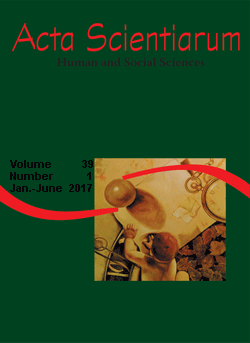<b>Microempresário informal: determinantes da evasão fiscal na previdência social
Résumé
As atividades desempenhadas na economia informal dos países em desenvolvimento, na medida em que não oferecem segurança social, não podem ser tidas como única saída ou meio de vida para os trabalhadores mais pobres. Cabendo aos governos desses países empregarem cada vez mais esforços para que os trabalhadores sejam atraídos para a formalidade e, com isso, passem a ter acesso à proteção social. O objetivo desse artigo é verificar quais características contribuíram para que os microempresários informais decidissem não colaborar para a previdência social dentre aqueles elegíveis ao grupo do MEI. Foram utilizados os microdados da Pesquisa Nacional por Amostra de Domicílios (PNAD) 2009, 2011, 2012, 2013 e 2014 para estimar regressões logísticas. Os resultados do modelo demonstram que os microempresários do setor de construção civil são os que apresentam as maiores chances de não contribuir com a previdência. Por outro lado, foi constatado que, a partir do ano de 2011 houve aumento das chances de contribuição previdenciária do microempresário pertencente a primeira faixa de rendimento (de até R$ 1.000,00). O aumento da contribuição com a previdência seria resultado da mudança de comportamento dos microempresários de menor renda.
Téléchargements
DECLARAÇÃO DE ORIGINALIDADE E DIREITOS AUTORAIS
Declaro que o presente artigo é original, não tendo sido submetido à publicação em qualquer outro periódico nacional ou internacional, quer seja em parte ou em sua totalidade.
Os direitos autorais pertencem exclusivamente aos autores. Os direitos de licenciamento utilizados pelo periódico é a licença Creative Commons Attribution 4.0 (CC BY 4.0): são permitidos o acompartilhamento (cópia e distribuição do material em qualqer meio ou formato) e adaptação (remix, transformação e criação de material a partir do conteúdo assim licenciado para quaisquer fins, inclusive comerciais.
Recomenda-se a leitura desse link para maiores informações sobre o tema: fornecimento de créditos e referências de forma correta, entre outros detalhes cruciais para uso adequado do material licenciado.


























